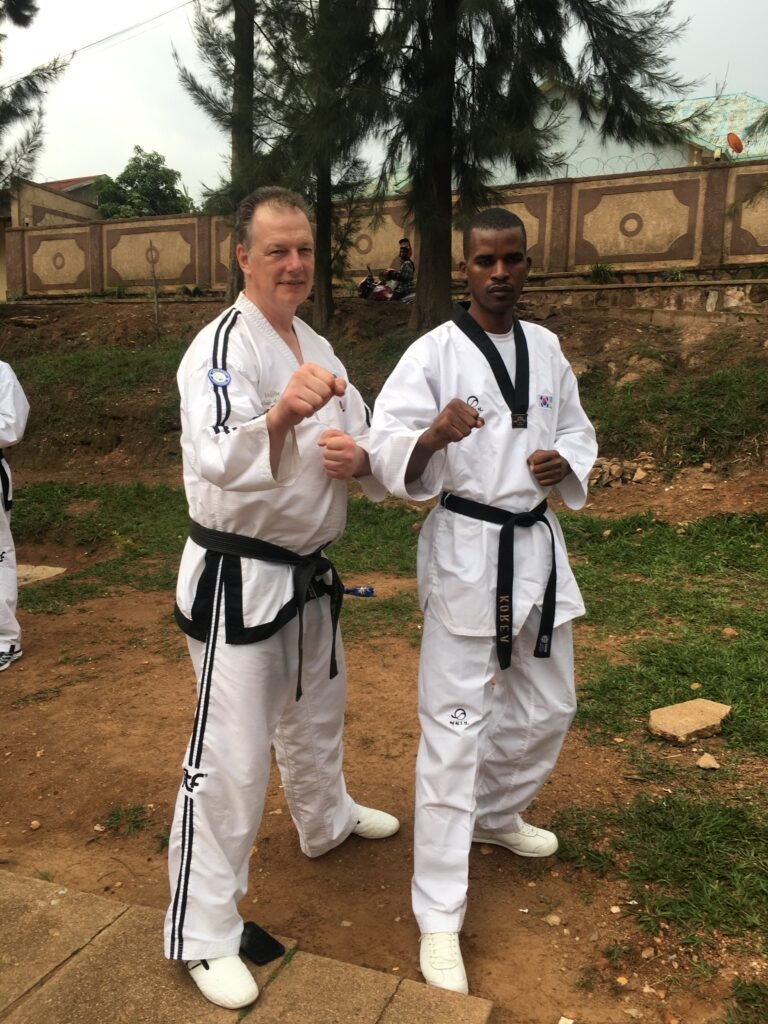
Sir Theoneste Uwayezu Imara (In front of the photo), A Taekwondo Master, Black Belt, and 3rd Dan; played a variety of responsibilities, both in terms of training students and promoting martial arts. Here are some of the key duties he assumed:
Instruction: Teaching students various Taekwondo techniques, forms (poomsae), sparring, self-defense, and breaking techniques. A master is responsible for ensuring that students understand the mechanics and philosophy behind the techniques.
Curriculum Development: Designing and refining the training curriculum to ensure it meets the needs of students at different levels. This includes planning lessons and training sessions that address both physical and mental aspects of Taekwondo.
Mentorship: Guiding and mentoring lower-ranked instructors and students, helping them develop their skills, improve their techniques, and advance in rank.
Promotion of Values: Instilling the core values of Taekwondo, including respect, discipline, perseverance, humility, and integrity, in students. A master serves as a role model and fosters a positive training environment.
Conducting Testing and Promotions: Overseeing belt promotion tests, evaluating students’ readiness for promotion, and administering rank tests. This assessment often includes both practical skills and knowledge of Taekwondo’s history and philosophy.
Community Engagement: Promoting Taekwondo within the community through demonstrations, seminars, workshops, and participation in local events, tournaments, or inter-school competitions.
Safety and Risk Management: Ensuring a safe training environment, implementing safety protocols, and supervising sparring matches to minimize injuries.
Continuous Learning: Staying updated with the latest techniques, developments, and teaching methods within Taekwondo. This may involve attending seminars, workshops, or training sessions with other masters.
Administrative Duties: Managing the dojang or training facility, including class scheduling, student enrollment, and communication with parents and students. This can also involve organizing events and competitions.
Promotion of Health and Fitness: Encouraging students to maintain physical fitness, proper nutrition, and a healthy lifestyle as part of their martial arts journey.
Conflict Resolution: Addressing disputes between students, instructors, or parents and ensuring a harmonious training environment.
Master Theoneste plays a vital role not only in teaching martial arts skills but also in shaping the character and values of students, promoting personal growth, and fostering a strong sense of community within the dojang.